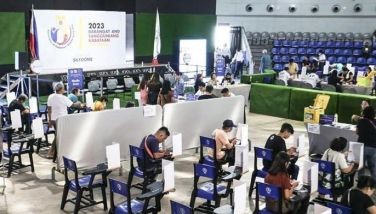Immature

The Thai ambassador was terribly upset when some Philippine officials described his countrymen as politically immature.
The aggrieved ambassador initially threatened to file a diplomatic protest unless the officials apologized for their assessment of the situation in Thailand. When apologies did not seem forthcoming, the ambassador toned down and eventually left matters at that.
Pushing the debate on the matter would only produce more severe commentaries, a cloud of heckling and a host of even more unwelcome remarks. That cannot possibly be healthy for the future of our diplomatic partnership.
The angry ambassador probably realized the remarkable differences in the political cultures of our two countries.
The Thais are generally more reserved than Filipinos. They are more careful not to cause offense. In Thailand, one could land in jail for saying something negative about the monarchy.
Here, we are a little more unrestrained in our opinions. When assessing situations in other countries, we assume they are not listening. Too, it is a national pastime to indulge in summary political condemnation.
Which is not to say that the adverse comments about the political maturity of the Thais are entirely without basis.
Some groups here have a positive view of the People’s Alliance for Democracy (PAD), the movement that had occupied Bangkok’s government house for weeks and the major airports for days. They think these actions need to be emulated here to force the ouster of government.
Some of them mistakenly think that the favored yellow color of the Thai protesters was of Filipino “people power” inspiration. For the record, yellow is the color of the Thai monarchy. The PAD is closely aligned with the king and irredeemably opposed to former Prime Minister Thaksin Shinawatra who is seen, among other things, to have undermined the influence of the monarch by assuming the role of patron to the rural masses.
The monarchist inclination of the movement makes its democratic claims a little ironic. They are basically anti-republicans, pro-monarchy and yet claimants to the mantle of good government.
The PAD supported the military coup that ousted Thaksin. That coup, it is generally conceded, was at least indirectly inspired by the king.
When elections were subsequently called, the political network associated with Thaksin still won. That disappointed the people of PAD, a movement based largely in Bangkok. They went after prime minister Samak, who was eventually ousted by a court ruling that penalized him for accepting talent fees for a televised cooking show he hosted.
It was the court, not the protest movement, that removed Samak: a rather simpleton politician the PAD condemns as being nothing more than a clone of Thaksin.
The removal of Samak was followed by the choice of Somchai to lead the government. Somchai is a brother-in-law of Thaksin although he is a distinguished technocrat in his own right.
PAD, which is obsessed with rejecting any government associated with Thaksin, pressed on with its protest actions. Over the past few months, this middle-class movement has transformed into what might more accurately be called a political cult. It runs a 24-hour cable channel that does nothing but rail against the elected government, incessantly ranting against its every move and raking up real or imagined controversies.
Last week, as the PAD was occupying the airports, the courts ruled on a case involving allegations of electoral fraud against the ruling pro-Thaksin party. The party was banned. Claiming victory, the protesters yielded the airports.
But they were in for another disappointment. The court ruling, it now seems, will not bring down the government. The ruling coalition simply reconstitutes itself by another name and retains its effective majority.
This is not anything new. When Thaksin was ousted, his ruling Thai Rak Thai party was banned from participating in elections. The ousted leader simply renamed themselves and went on to win control of the elected government.
The pro-Thaksin politicians may be guilty of all that the PAD protestors allege. But it remains that in all the open elections held, they draw strong support from the provinces north of Bangkok. If they continue to do so, they will win any elections called — to the chagrin of the Bangkok-based middle class movements.
The PAD’s street protest action, on the other hand, has shown to be unable to force out governments. Unless, of course, the army steps in again and deploys tanks to the streets of the Thai capital. Recall that both Samak and Somchai were removed by court decisions, not by street protests.
The ironic thing is that this “democratic” movement does not really excite the Thai masses. In Bangkok, when I visited a few weeks ago, ordinary people look upon the PAD as a nuisance.
Given Thaksin’s residual appeal, his political network will likely continue to dominate future elections. In which case, the only way the PAD could deal with that is to reject all elected governments in the foreseeable future. Or support military interventions that install unelected governments.
Maybe “immature” is, indeed, not the proper word to describe the activities of the PAD and the destruction it inflicts on the Thai economy. But any other adjective would be harsher.
- Latest
- Trending




























